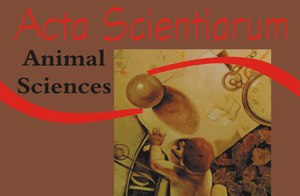ABSTRACT.
It is expected that the availability of forage for animals in the tropics will fluctuate in the future due to climate change. Ensiling of tropical forages constitutes a strategy to cope with food scarcity during long dry seasons. Tithonia diversifolia (TD), is a plant belonging to family Asteraceae, with a wide adaptation in tropical areas. A Rostock Fermentation Test (RFT) was performed to compare the ensilabillity potential among four epiphytic lactic acid bacteria (LAB) strains isolated from TD. Further, two experiments were designed 1) to evaluate the acidification potential of the best strain from the preliminary test (T735), and 2) to determine the ensilability of different levels of inclusion in the TD / PP mixture. For the first experiment, T735 and a blend of lactic acid-fermenting bacteria (BLB) decreased the pH rapidly. In experiment 2, different PP/TD ratios (0/100; 33/67; 67/33; 100/0) were ensiling, all inoculated with T735, (BLB) and their mixture. Increasing of grass PP in the mixtures brought about a fast drop in pH, facilitating TD ensilabillity. The use of T735 improved acidification and fermentation parameters of TD/PP silage.
Keywords:
tropical forages; inoculum; acidification; wild sunflower
